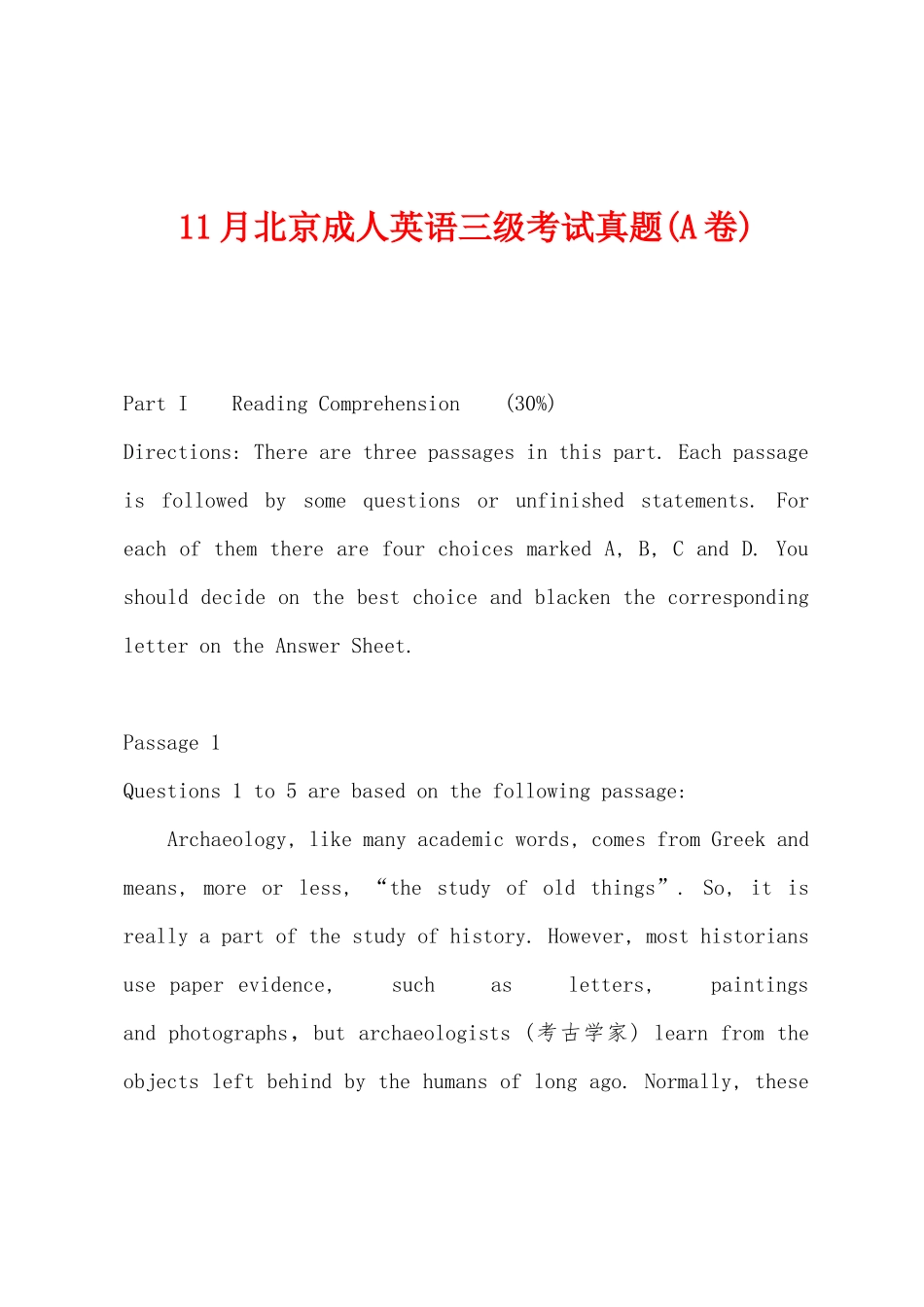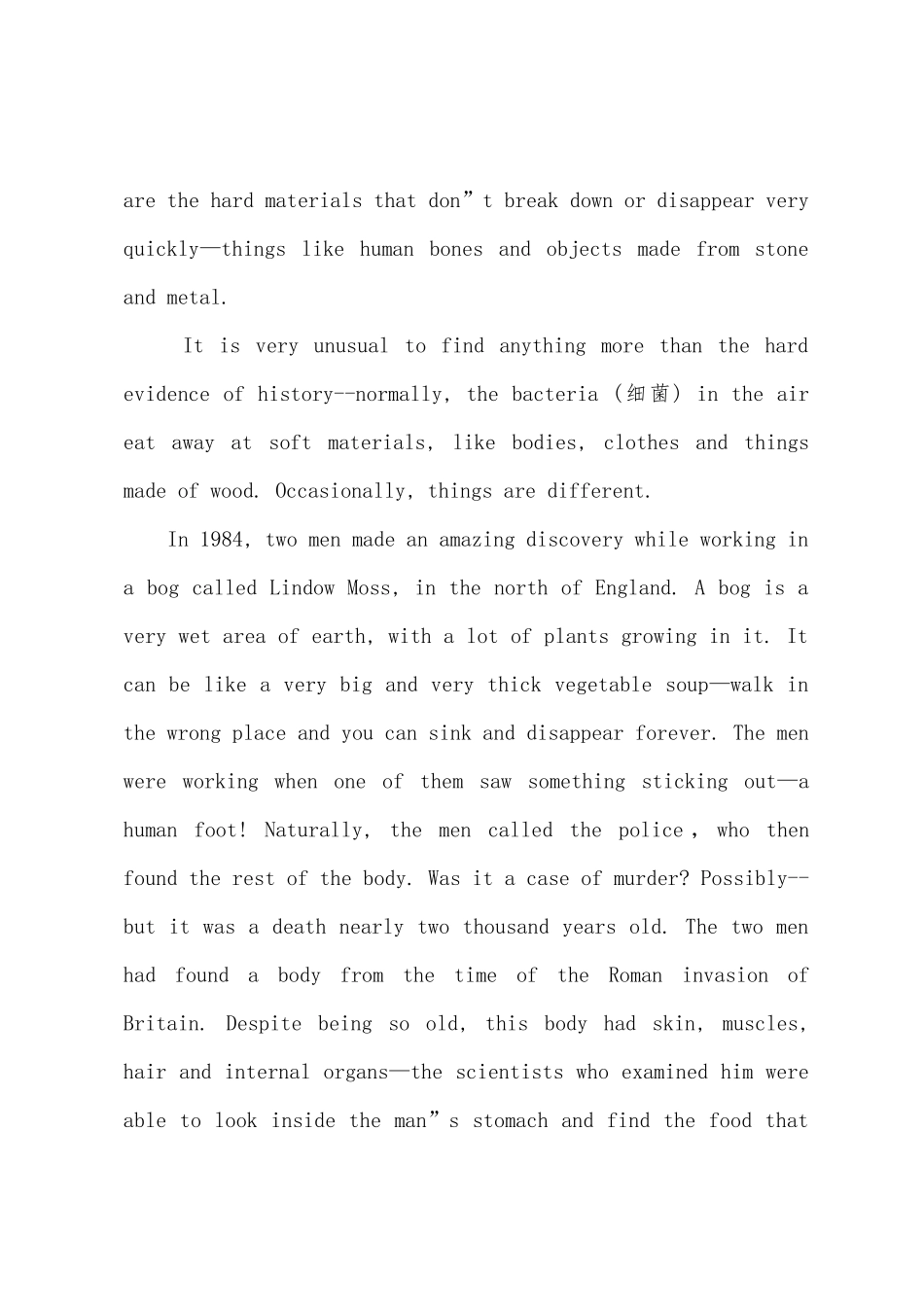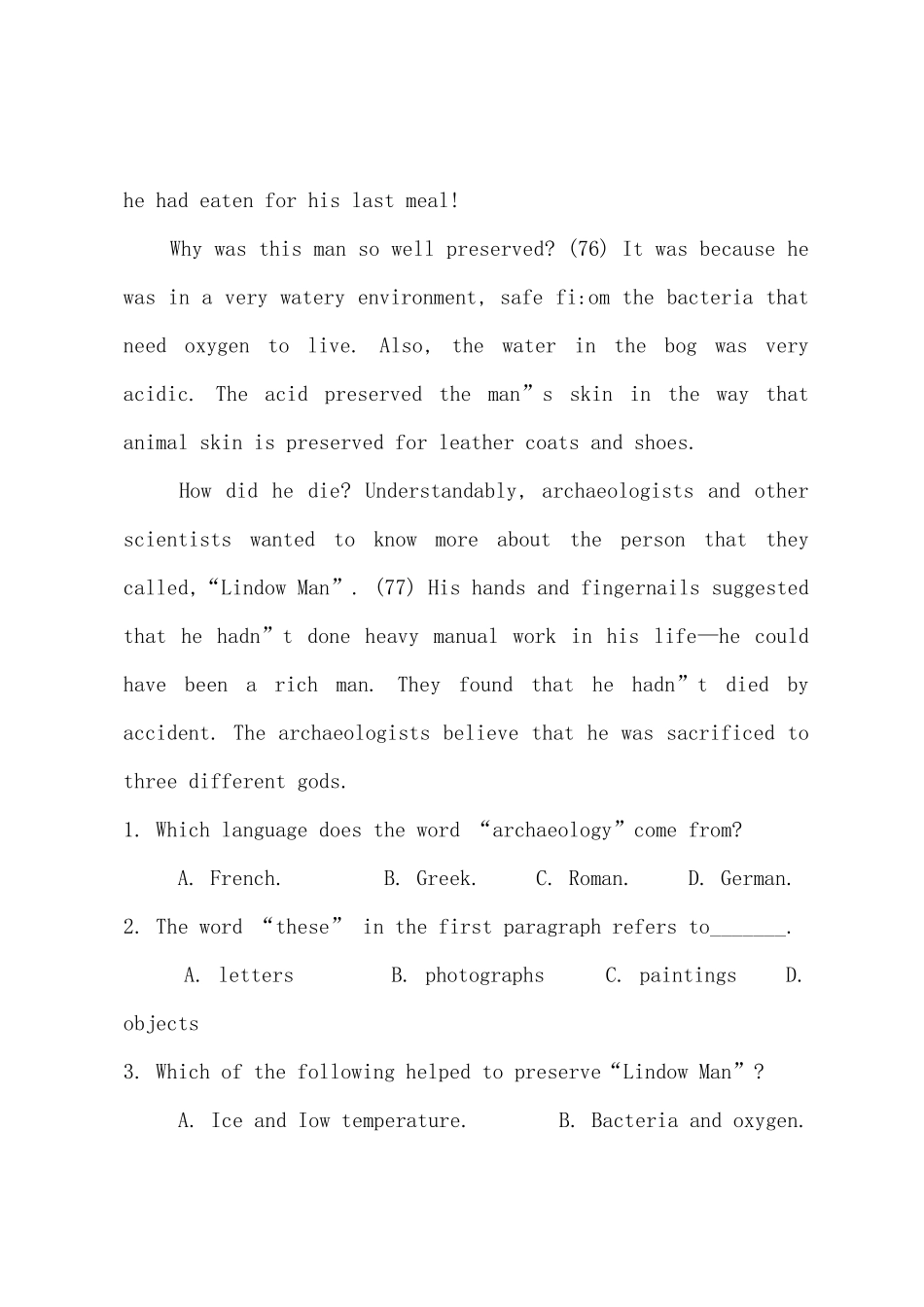11 月北京成人英语三级考试真题(A 卷)Part I Reading Comprehension (30%)Directions: There are three passages in this part. Each passage is followed by some questions or unfinished statements. For each of them there are four choices marked A, B, C and D. You should decide on the best choice and blacken the corresponding letter on the Answer Sheet. Passage 1Questions 1 to 5 are based on the following passage: Archaeology, like many academic words, comes from Greek and means, more or less, “the study of old things”. So, it is really a part of the study of history. However, most historians use paper evidence, such as letters, paintings and photographs,but archaeologists (考古学家) learn from the objects left behind by the humans of long ago. Normally, these are the hard materials that don”t break down or disappear very quickly—things like human bones and objects made from stone and metal. It is very unusual to find anything more than the hard evidence of history--normally, the bacteria (细菌) in the air eat away at soft materials, like bodies, clothes and things made of wood. Occasionally, things are different. In 1984, two men made an amazing discovery while working in a bog called Lindow Moss, in the north of England. A bog is a very wet area of earth, with a lot of plants growing in it. It can be like a very big and very thick vegetable soup—walk in the wrong place and you can sink and disappear forever. The men were working when one of them saw something sticking out—a human foot! Naturally, the men called the police , who then found the rest of the body. Was it a case of murder? Possibly--but it was a death nearly two thousand years old. The two men had found a body fr...


